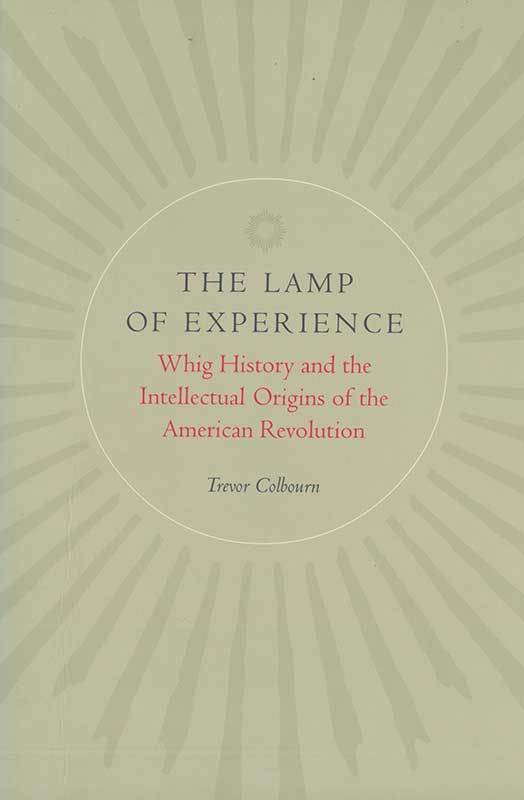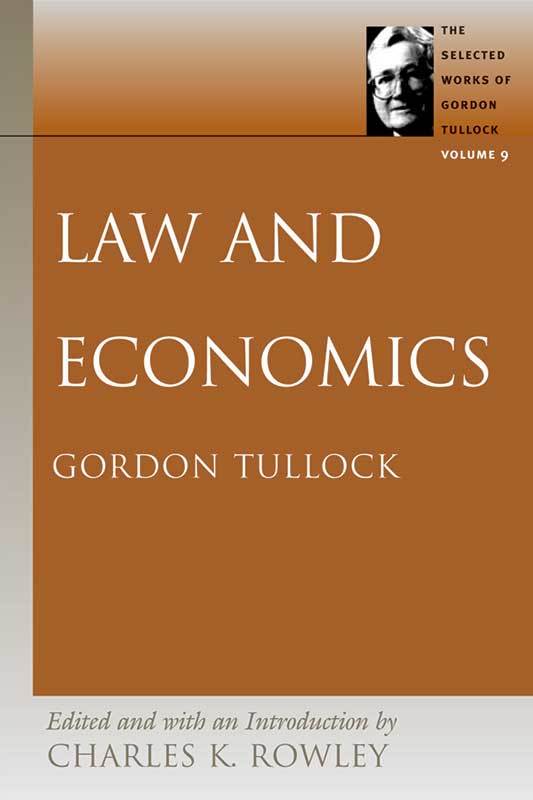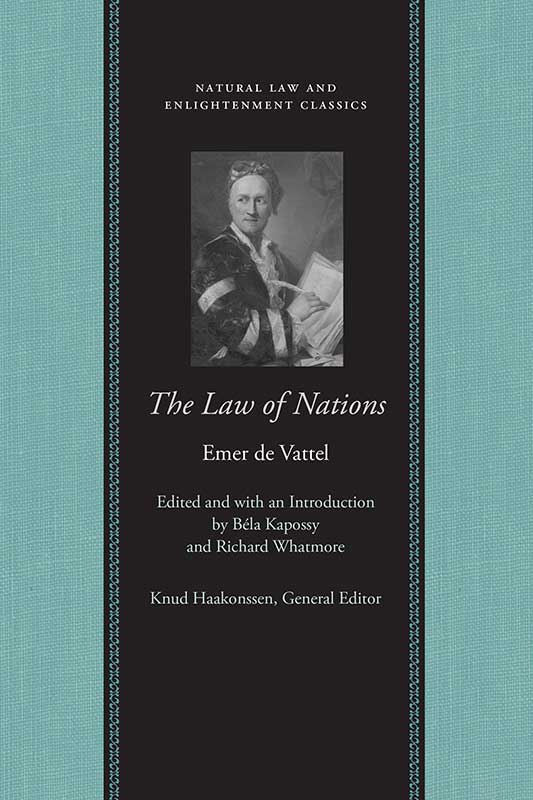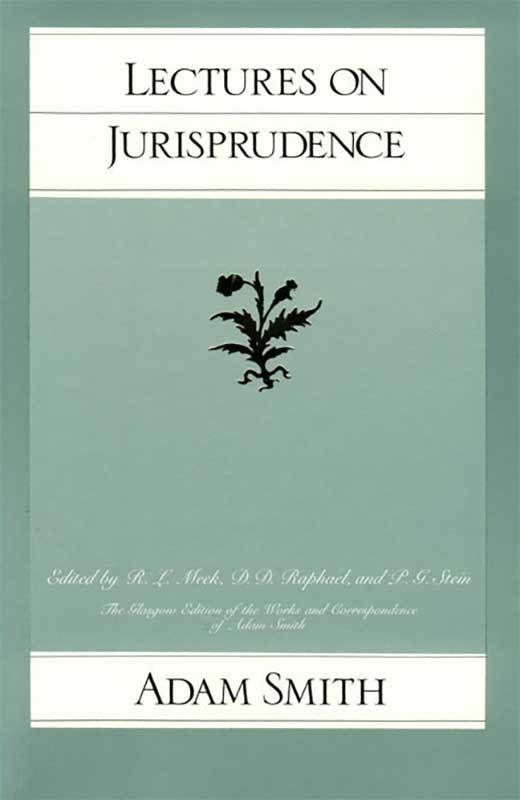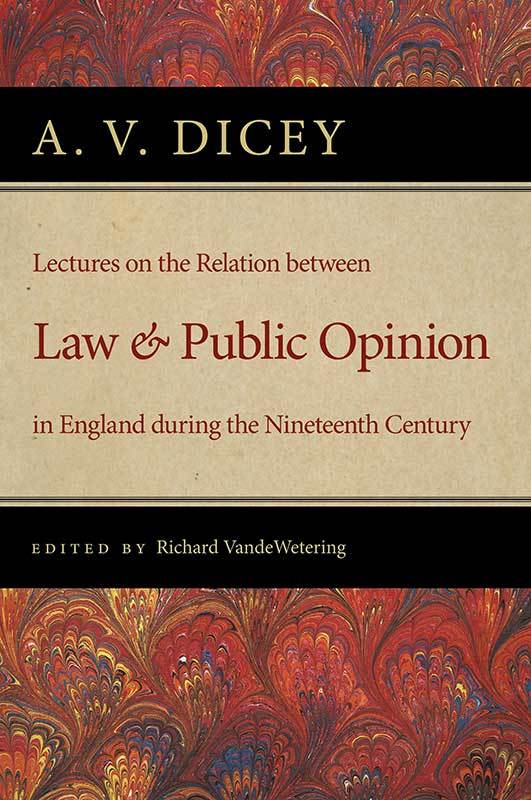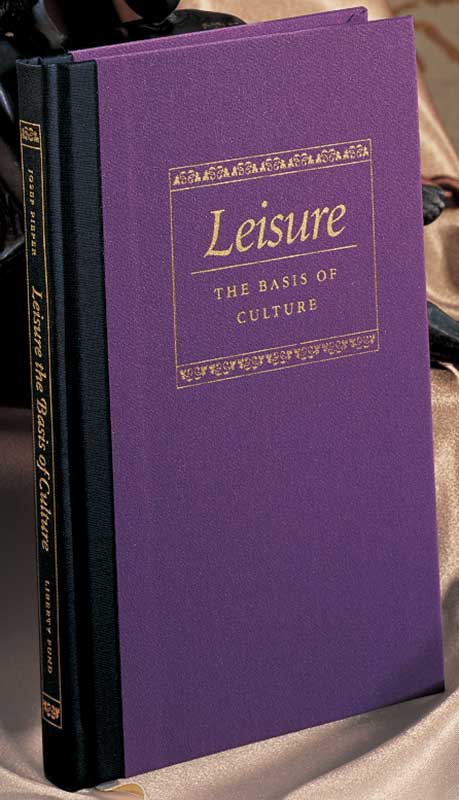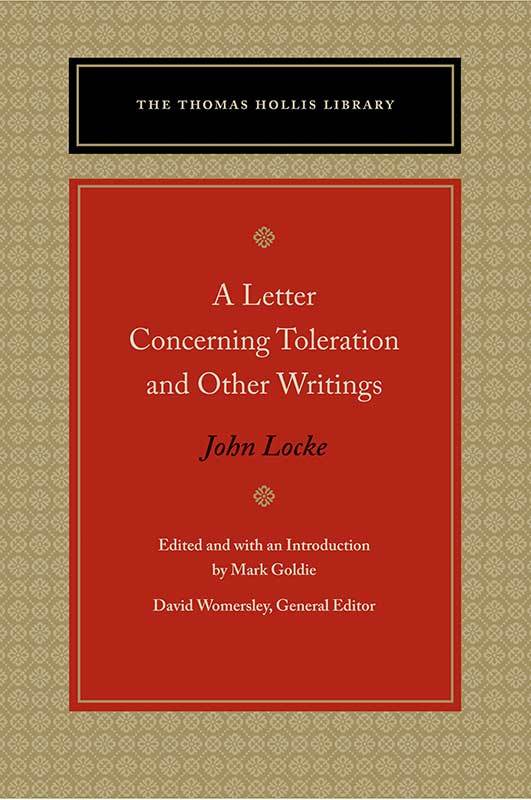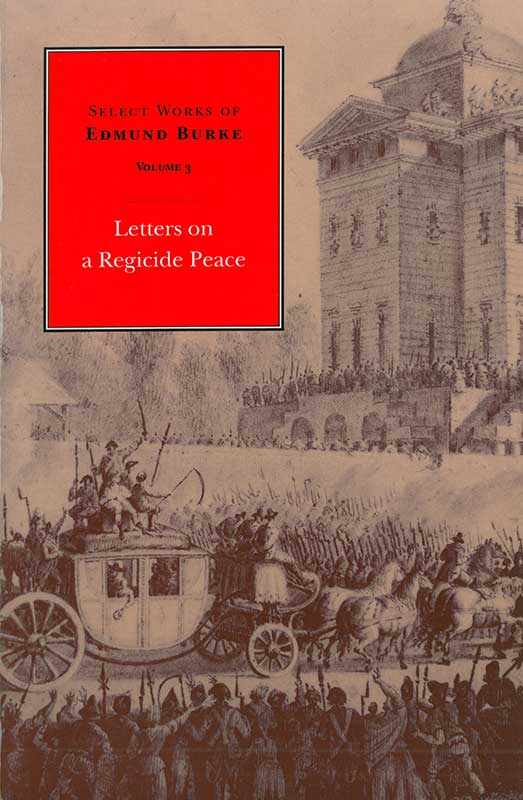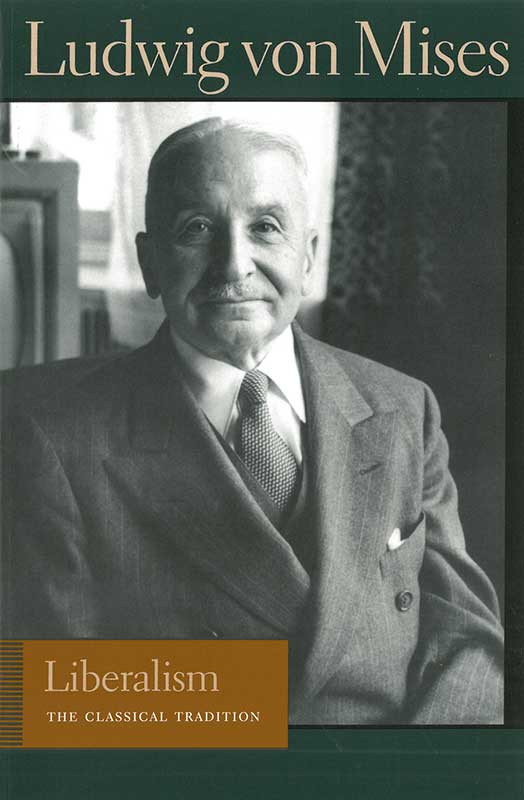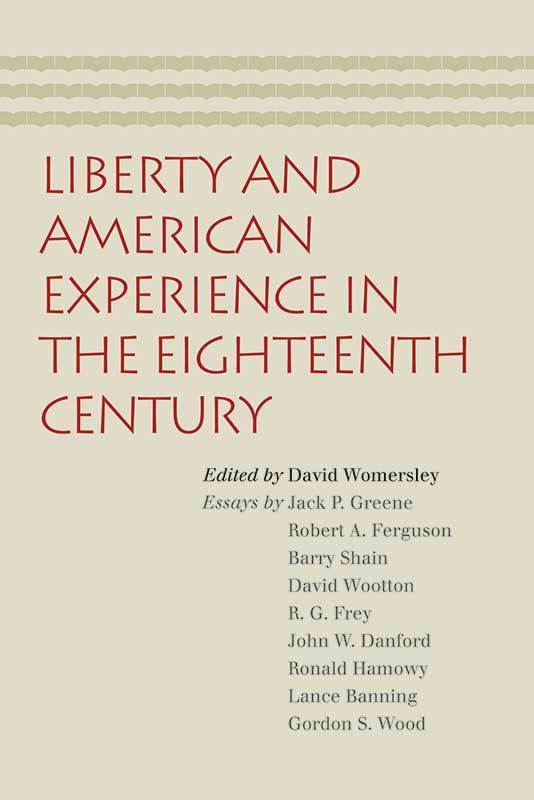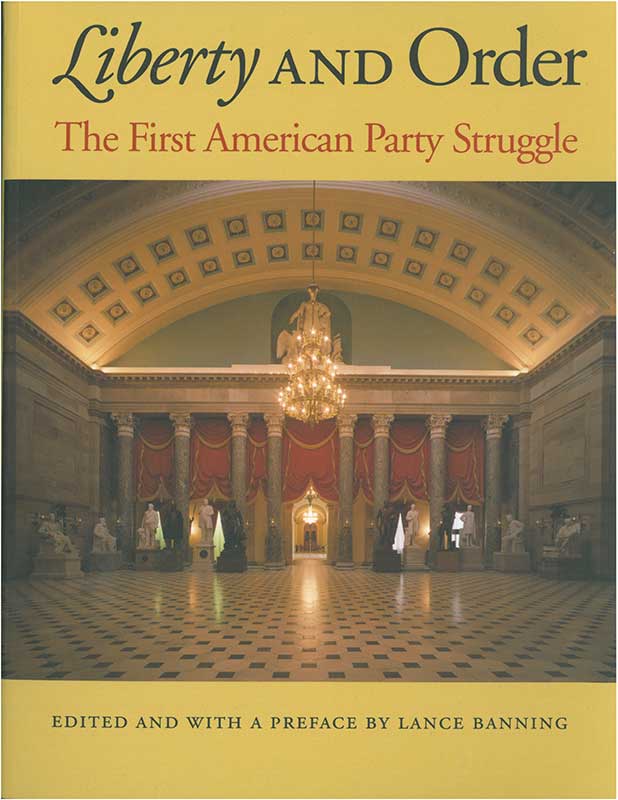For Students
-
The Lamp of Experience
by Trevor Colbourn
/ Learn MoreIn a landmark work, a leading scholar of the eighteenth century examines the ways in which an understanding of the nature of history influenced the thinking of the founding fathers. As Jack P. Greene has observed, “[The Whig] conception saw the past as a continual struggle between liberty and virtue on one hand and arbitrary power and corruption on the…
-
Law and Economics
by Gordon Tullock
/ Learn MoreGordon Tullock’s innovative scholarship in law and economics shines in this volume. It includes, in full, his famous book The Logic of Law, the first book to analyze the law from the perspective of economics. It also includes an influential and controversial monograph, The Case against the Common Law, the best chapters from his book, Trials on Trial, as well…
-
The Law of Nations
by Emer de Vattel
/ Learn MoreThe great eighteenth-century theorist of international law Emer de Vattel (1714–1767) was a key figure in sustaining the practical and theoretical influence of natural jurisprudence through the Revolutionary and Napoleonic eras. Coming toward the end of the period when the discourse of natural law was dominant in European political theory, Vattel’s contribution is cited as a major source of contemporary…
-
Lectures on Jurisprudence
by Adam Smith
/ Learn MoreSmith’s Lectures on Jurisprudence, originally delivered at the University of Glasgow in 1762–1763, presents his “theory of the rules by which civil government ought to be directed.” The chief purpose of government, according to Smith, is to preserve justice; and “the object of justice is security from injury.” The state must protect the individual’s right to his person, property, reputation,…
-
Lectures on Rhetoric and Belles Lettres
by Adam Smith
/ Learn MoreThe “Notes of Dr. Smith’s Rhetorick Lectures,” discovered in 1958 by a University of Aberdeen professor, consists of lecture notes taken by two of Smith’s students at the University of Glasgow in 1762–1763. There are thirty lectures in the collection, all on rhetoric and the different kinds or characteristics of style. The book is divided into “an examination of the…
-
Lectures on the Relation between Law and Public Opinion in England during the Nineteenth Century
by A. V. Dicey
/ Learn MoreThis volume brings together a series of lectures A. V. Dicey first gave at Harvard Law School on the influence of public opinion in England during the nineteenth century and its impact on legislation. Dicey’s lectures were accurate as a reflection of the anxieties felt by turn-of-the-century Benthamite Liberals in the face of Socialist and New Liberal challenges. A. V.…
-
Leisure the Basis of Culture
by Josef Pieper
/ Learn MoreThis elegantly written work introduces the reader to an understanding that leisure is nothing less than “an attitude of mind and a condition of the soul that fosters a capacity to perceive the reality of the world.” Pieper demonstrates that “Leisure has been, and always will be, the first foundation of any culture,” and observes, “in our bourgeois Western world…
-
A Letter Concerning Toleration and Other Writings
by John Locke
/ Learn MoreThis volume opens with Locke’s Letter Concerning Toleration (1689) and also contains his earlier Essay Concerning Toleration (1667), extracts from the Third Letter for Toleration (1692), and a large body of his briefer essays and memoranda on this theme. As editor Mark Goldie writes in the introduction, A Letter Concerning Toleration “was one of the seventeenth century’s most eloquent pleas…
-
Select Works of Edmund Burke: Letters on a Regicide Peace
by Edmund Burke
/ Learn MoreThis famed Payne edition of Select Works of Edmund Burke is universally revered by students of English history and political thought. Volume 3 presents Burke’s Four Letters on the Proposals for Peace with the Regicide Directory of France—generally styled Letters on a Regicide Peace (1795–1796). The Letters, Payne believed, deserve to “rank even before [Burke’s] Reflections, and to be called…
-
Liberalism
by Ludwig von Mises
/ Learn MoreThis book presents the theoretical and practical arguments for liberalism in the classical tradition as defined by Mises as “the liberal doctrine of the harmony of the rightly understood interests of all members of a free society founded on the principle of private ownership of the means of production.” The foundation of liberalism, Mises says, rests on an understanding and…
-
Liberty and American Experience in the Eighteenth Century
by David Womersley
/ Learn MoreLiberty and American Experience in the Eighteenth Century presents ten new essays on central themes of the American Founding period by some of today’s preeminent scholars of American history. The writers explore various aspects of the zeitgeist, among them Burke’s theories on property rights and government, the relations between religious and legal understandings of liberty, the significance of Protestant beliefs…
-
Liberty and Order
by Lance Banning
/ Learn MoreLiberty and Order is an ambitious anthology of primary source writings: letters, circulars, debate transcriptions, House proceedings, and newspaper articles that document the years during which America’s Founding generation divided over the sort of country the United States was to become. With this significant collection, the reader receives a deeper understanding of the complex issues, struggles, and personalities that made…
Promotions
Stayed tuned for future promotions!

